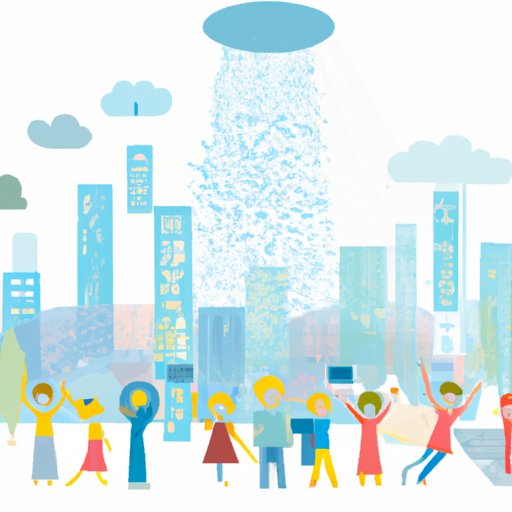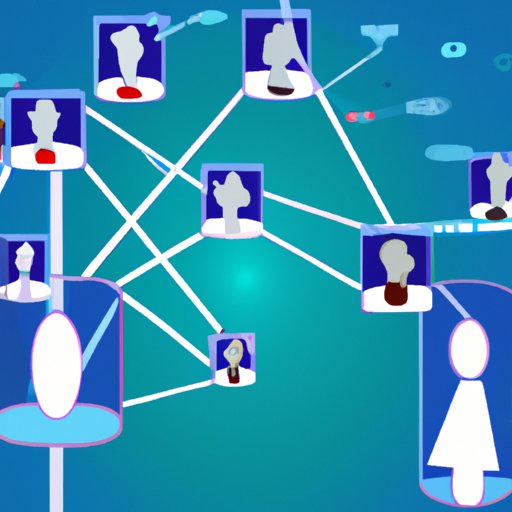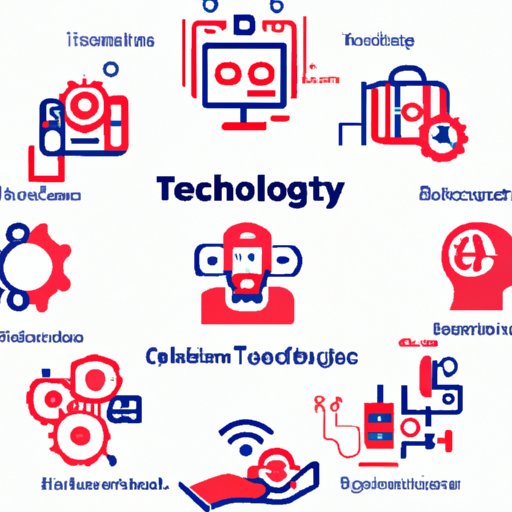Introduction
Technology has become an essential part of our daily lives. From smartphones to streaming services, it’s hard to imagine a world without technology. But what exactly is technology? According to Merriam-Webster, technology is “the practical application of knowledge especially in a particular area” or “a capability given by the practical application of knowledge.” In other words, technology is the use of knowledge to solve problems and create new opportunities. This article will explore why technology is important and how it has impacted society in a positive way.

How Technology Has Impacted Society in a Positive Way
Technology has had a huge impact on society in terms of increased efficiency and productivity. For example, advances in communication technologies have allowed businesses to communicate more quickly and efficiently with customers, suppliers, and employees. This has enabled them to streamline operations and increase their output. Additionally, advancements in medical technology have enabled doctors to diagnose patients more accurately and treat diseases more effectively.
Technology has also provided greater access to information and resources. With the advent of the internet, people are now able to access vast amounts of knowledge and resources from around the world. This has opened up new opportunities for learning and exploration that were not previously available. Furthermore, social media platforms have enabled people to connect with others from different backgrounds and cultures, fostering greater understanding and empathy.
Finally, technology has improved communication across cultures. With the help of translation software, people are now able to communicate in multiple languages, bridging the gap between cultures and making it easier to collaborate with one another. This has been particularly beneficial for international business, allowing companies to operate more effectively across borders.

Current Advancements Changing the Way People Work and Live
There are several current advancements in technology that are changing the way people work and live. Automation and robotics are becoming increasingly commonplace, allowing businesses to automate tedious tasks and free up time for more creative endeavors. Additionally, artificial intelligence (AI) and machine learning are being used to analyze large amounts of data and make decisions faster than ever before.
Cloud computing and big data are also revolutionizing the way businesses operate. By utilizing cloud technology, companies are able to store and access data from anywhere in the world, making collaboration much easier. Big data analytics allows businesses to gain insights into customer behavior, enabling them to make more informed decisions.

Real Life Examples of Technology Making Life Easier
Technology is also making life easier in many ways. Smart homes, for example, allow homeowners to control their lights, thermostat, security system, and other appliances remotely using their smartphone or tablet. Wearable technology, such as fitness trackers and smart watches, enables users to monitor their health and activity levels with ease. Autonomous vehicles, such as self-driving cars, offer the promise of safer and more efficient transportation.
The Future of Technology and its Implications for Humanity
As technology continues to evolve, there are both opportunities and challenges that lie ahead. On the one hand, there are endless possibilities for further development in areas such as healthcare, education, and energy production. On the other hand, there are potential ethical issues that need to be addressed, such as privacy concerns and the increasing reliance on robots and AI.
Fortunately, technology can also be harnessed to create a better future. For example, renewable energy sources such as solar and wind power can help reduce our reliance on fossil fuels and combat climate change. Additionally, digital technologies can be used to improve access to healthcare, education, and other vital services for those living in underserved communities.
Conclusion
In conclusion, technology has had a profound impact on society in terms of increased efficiency, productivity, access to information, and improved communication. Current advancements such as automation, AI, and cloud computing are transforming the way we work and live. Moreover, there are real life examples of technology making life easier, from smart homes to autonomous vehicles. Finally, there are opportunities and challenges that lie ahead, but with the right approach, technology can be harnessed to create a better future.
At the end of the day, technology is here to stay and it is up to us to make sure that it is used responsibly and ethically. We must ensure that technology is used to benefit humanity and help create a fairer, more equitable world.
(Note: Is this article not meeting your expectations? Do you have knowledge or insights to share? Unlock new opportunities and expand your reach by joining our authors team. Click Registration to join us and share your expertise with our readers.)
